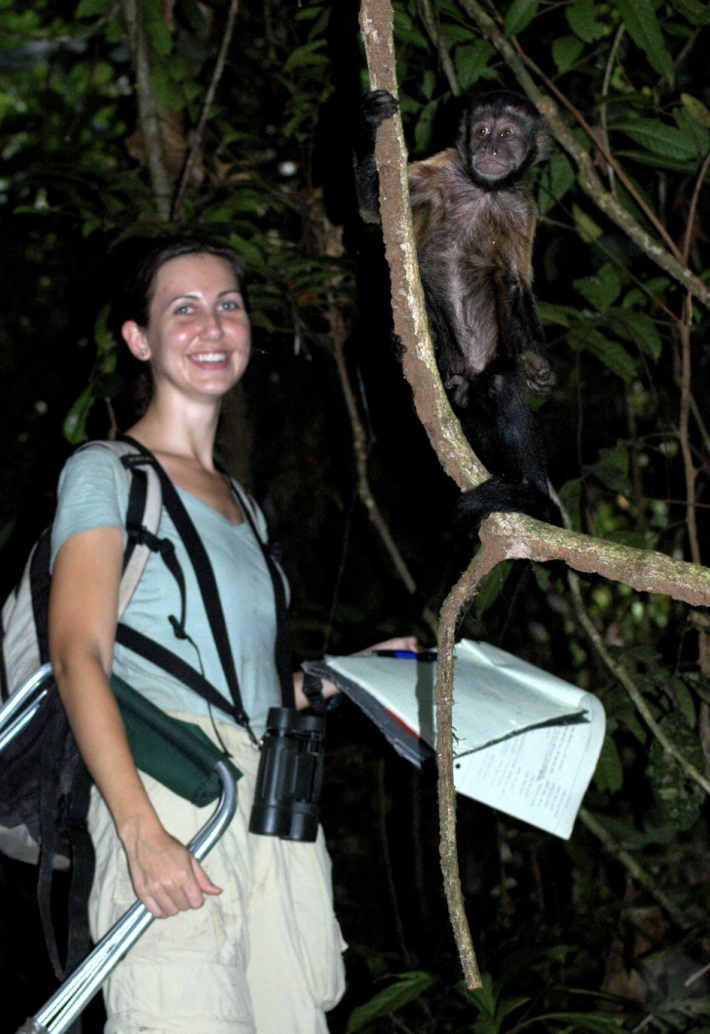
Erin in the field.
Erin Ehmke, Ph.D.
Director of Research
“Growing up, I knew my path would revolve around animals. I wanted so badly to follow in the footsteps of my hero, Jane Goodall, but had no idea how to make that dream a reality. At that time, the only careers I knew that worked with animals were zoo keeper and veterinarian.
“In 1995, I started college with a pre-vet focus, majoring in Wildlife Ecology and Conservation. I volunteered for any opportunity that provided experience with animals: veterinary clinics, a foal unit, zoos, a bat sanctuary. But it was a primate sanctuary that solidified my path. After years of volunteering (and later working) with a sanctuary that rescues abused or unwanted monkeys from the pet and entertainment industries, I craved to know how different the behavior of these monkeys was from their wild counterparts. It was then that I realized that I was ready for my Jane Goodall experience.
“Thankfully, through my varied experiences, I learned about opportunities that I never knew existed that could make this possible. After completing a month-long primate ecology field school in Panama, I knew this was the direction I needed to continue. I applied to be a field assistant for an ongoing study in Suriname, South America. This year-long position focused on capuchin monkey behavioral ecology and provided opportunity to do exactly what I had craved: to experience the natural lives of the monkeys I had worked with in captivity.
“That year was one of the best of my life. At its conclusion, I entered graduate school which enabled me to return to Suriname for another year of fieldwork for my Ph.D. research. I studied female social support and stress in wild capuchin monkeys and learned just how important social bonds are for the health of primates, humans included. After graduating, I focused on teaching at the college-level. While I enjoyed teaching immensely, I missed working with animals, and I missed the excitement of asking scientific questions and collecting data to answer them.
“In 2011, it all came together when I was hired as the Research Manager at the Duke Lemur Center—a position that combined student mentorship with the non-invasive study of lemurs. Now as the Director of Research at the DLC, my vision is to expand our research programs in both Durham and Madagascar, serving as a model institution that prioritizes animal welfare, high-impact research, and access to opportunities for all students and scientists around the world. When I was younger, I dreamt of this path but did not know how to achieve it, partly because I did not realize all the various opportunities that were out there. I encourage all students, of any age, to try new experiences. And I make it my personal mission to make opportunities accessible for students trying to find their own paths.”

